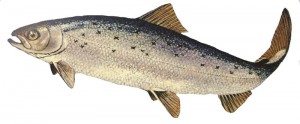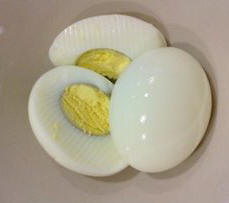Happy Father’s Day!
 I wanted to wish all the Dad’s a very Happy Father’s Day. I love being a dad; I love my kids; and, I think it’s real special being a dad, for a million reasons.
I wanted to wish all the Dad’s a very Happy Father’s Day. I love being a dad; I love my kids; and, I think it’s real special being a dad, for a million reasons.
Did you know that this year is the centennial celebration of Father’s Day? 100 years of recognizing dear ‘ol dad.
Father’s Day is a celebration inaugurated in the early twentieth century to complement Mother’s Day in celebrating fatherhood and male parenting. It is also celebrated to honor and commemorate our forefathers.
Father’s Day is celebrated on a variety of dates worldwide and typically involves gift-giving, special dinners to fathers, and family-oriented activities.
100 Years Ago
 The first observance of Father’s Day is believed to have been held on June 19, 1910 through the efforts of Sonora Smart Dodd of Spokane, Washington. After listening to a church sermon at Spokane’s Central Methodist Episcopal Church in 1909 about the newly recognized Mother’s Day, Dodd felt strongly that fatherhood needed recognition, as well.
The first observance of Father’s Day is believed to have been held on June 19, 1910 through the efforts of Sonora Smart Dodd of Spokane, Washington. After listening to a church sermon at Spokane’s Central Methodist Episcopal Church in 1909 about the newly recognized Mother’s Day, Dodd felt strongly that fatherhood needed recognition, as well.
She wanted a celebration that honored fathers like her own father, William Smart, a Civil War veteran who was left to raise his family alone when his wife died giving birth to their sixth child when Sonora was 16 years old.
The following year with the assistance of Reverend Dr. Conrad Bluhm, her pastor at Old Centenary Presbyterian Church (now Knox Presbyterian Church), Sonora took the idea to the Spokane YMCA. The Spokane YMCA, along with the Ministerial Alliance, endorsed Dodd’s idea and helped it spread by celebrating the first Father’s Day in 1910.
Red Roses And White Roses
Sonora suggested her father’s birthday, June 5th, be established as the day to honor all Father’s. However, the pastors wanted more time to prepare, so on June 19, 1910, young members of the YMCA went to church wearing roses: a red rose to honor a living father, and a white rose to honor a deceased one.
It took many years to make the holiday official. In spite of support from the YWCA, and churches, Father’s Day ran the risk of disappearing from the calendar. Where Mother’s Day was met with enthusiasm, Father’s Day was often met with laughter. The holiday was gathering attention slowly, but for the wrong reasons.
It was the target of much satire, parody and derision, including jokes from the local newspaper Spokesman-Review. Many people saw it as the first step in filling the calendar with mindless promotions.
The US Congress Was Not Helpful
A bill to accord national recognition of the holiday was introduced in Congress in 1913. In 1916, President Woodrow Wilson went to Spokane to speak in a Father’s Day celebration and wanted to make it official, but Congress resisted, fearing that it would become commercialized.
President Calvin Coolidge recommended in 1924 that the day be observed by the nation, but stopped short of issuing a national proclamation. Two earlier attempts to formally recognize the holiday had been defeated by Congress.
In 1957, Maine Senator Margaret Chase Smith wrote a proposal accusing Congress of ignoring fathers for 40 years while honoring mothers, thus “singling out just one of our two parents.” In 1966, President Lyndon Johnson issued the first presidential proclamation honoring fathers, designating the third Sunday in June as Father’s Day.

Congress finally got on boaad six years later; the day was made a permanent national holiday when President Richard Nixon signed it into law in 1972.
This year, 2010, is the Father’s Day Centennial. Spokane Washington has events scheduled all month long. Celebration occurs in Spokane with a month of events commemorating the day.
Mike
Leave A Comment!
Do you have some thoughts about this? We’d love to hear what you think. To leave a comment if you are receiving this post via email or RSS, just click the title above and scroll to the bottom of the post and type in your comment. If not, just scroll to the bottom of this post and type in your comment.
Share This Article!
Do you want to share this article on your website or Blog? To share on social media, like Facebook or Twitter, there are buttons below.
For past articles, click on the, “Posts” tab above. For past videos and podcasts, mouse over the “Posts” tab above. Look for more videos as well as more podcasts coming soon to Confidence And Joy!

 This is true in any culture. Suppose someone was completely unfamiliar with the culture here in the United States and they heard expressions like, “I sat down in the recliner for awhile because my dogs were really barking,” or, “For supper I had a hot dog,” or, “It was hard to sleep because it was raining cats and dogs.”
This is true in any culture. Suppose someone was completely unfamiliar with the culture here in the United States and they heard expressions like, “I sat down in the recliner for awhile because my dogs were really barking,” or, “For supper I had a hot dog,” or, “It was hard to sleep because it was raining cats and dogs.” would soak into the stones and over a period of time, at a glance, the stones might even look like the bread. But no father would ever be that stupid to mistake a stone for bread and give it to his son who asked him for bread.
would soak into the stones and over a period of time, at a glance, the stones might even look like the bread. But no father would ever be that stupid to mistake a stone for bread and give it to his son who asked him for bread. In the eastern lands there are some water serpents that look similar to fish. A person who was unfamiliar with both fish and water serpents could easily mistake one for the other. But a father who would be concerned about his family would certainly make sure that there was no mistake. If his son asked for a fish, then that is what a good father would give him.
In the eastern lands there are some water serpents that look similar to fish. A person who was unfamiliar with both fish and water serpents could easily mistake one for the other. But a father who would be concerned about his family would certainly make sure that there was no mistake. If his son asked for a fish, then that is what a good father would give him. Perhaps a young child might not recognize the difference between the body of a scorpion and an egg. But what father would not know? What father, whose son asked for an egg, would ever mistakenly or even intentionally give his son a scorpion instead?
Perhaps a young child might not recognize the difference between the body of a scorpion and an egg. But what father would not know? What father, whose son asked for an egg, would ever mistakenly or even intentionally give his son a scorpion instead? In our culture perhaps we could understand this if the
In our culture perhaps we could understand this if the  question would have been about candy. If our child asked us for some candy, would we give them marbles instead? If they asked for some marshmallows, would we give them a cotton ball instead? Would we? Well of course not!
question would have been about candy. If our child asked us for some candy, would we give them marbles instead? If they asked for some marshmallows, would we give them a cotton ball instead? Would we? Well of course not!